Shoulder straps do not fit the robe: Lidiya Izovitova analyzes models of military courts restoration
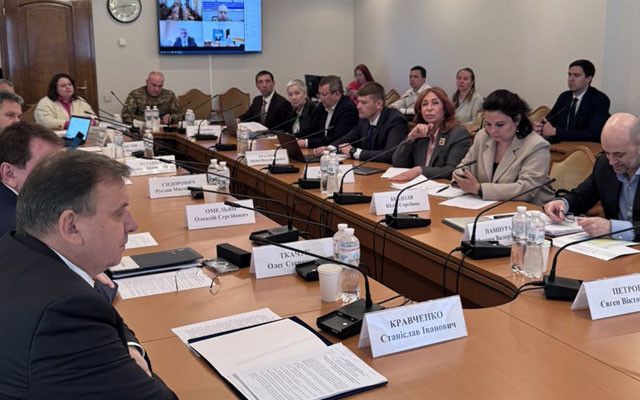
The Verkhovna Rada Committee on Legal Policy held a working meeting to discuss draft laws that provide for the establishment and operation of military courts in Ukraine on a permanent basis. The Institute of Advocacy presented its reservations regarding this initiative.
Restoration of courts
Until 2010, Ukraine already had a system of military courts that dealt with cases related to war crimes. However, during the war, the number of military criminal offenses, violations of the laws and customs of war, and disciplinary violations among military personnel increased.
Therefore, to ensure effective and efficient judicial proceedings in the military sphere and to protect the rights of servicemen, MPs have submitted draft laws to the Parliament:
No. 13048 dated 27.02.2025 «On Amendments to the Law of Ukraine «On the Judicial System and Status of Judges» regarding the functioning of military courts»;
No. 13048-1 dated 11.03.2025 «On Amendments to the Law of Ukraine «On the Judicial System and Status of Judges» regarding the establishment and organization of military courts».
They propose the establishment of military courts of garrisons (alternatively, district military courts), which will consider cases
- military criminal offenses;
- on violations of the rules and customs of warfare;
- on violations of the legislation on state secrets in the Armed Forces of Ukraine and military formations;
- administrative cases in which a military or military administration body is a party;
- on disciplinary offenses of military personnel.
Additionally, the alternative draft envisages consideration of cases on social and legal protection of military personnel and their families.
It also envisages the establishment of military courts of appeal and a separate chamber for military cases (military judicial chamber) in the Supreme Court.
Judges of military courts will be required to undergo a mandatory course of specialized training on military law, military discipline, tactics of military operations and the specifics of military structures within one year of their appointment.
These judges will be awarded military ranks of officers. The procedure will be determined by a regulation approved by the Ministry of Defense in agreement with the High Council of Justice. The procedure for awarding higher military ranks will be determined by the President. An alternative draft law provides for the appointment of military judges to the positions of persons who, in accordance with the law, have been awarded the rank of officer and have decided to serve in military courts. These judges will perform military service in accordance with the law and the Regulation on Military Service in Military Courts, which will be approved by the President upon the proposal of the HCJ.
Influence through rank
Lidiya Izovitova, the President of the Ukrainian National Bar Association and the Bar Council of Ukraine, noted that in times of war, it is not the restoration of previously liquidated military courts that is relevant, but the creation of military courts capable of hearing both cases of military offenses (war crimes) and cases of war crimes (conventional crimes). These courts should also provide legal protection for military personnel and their social guarantees.
She named three main criteria that should form the basis for evaluating legislative initiatives:
- Do the proposed models of military courts meet the requirements of independence and impartiality? After all, they are prerequisites for ensuring the right to a fair trial.
- Is there a threat of derogation from the constitutional guarantees of the right to a fair trial and international human rights standards?
- Will the creation of military judges in this way lead to significant violations of the rule of law?
In this regard, L. Izovitova pointed out that according to both drafts, the judges who will administer justice in military courts will be military personnel who are in military service and receive military ranks.
Even if the procedure for assigning and promoting military ranks is determined in agreement with the High Council of Justice, this model contradicts the basic principles of separation of powers and independence of the judiciary. The involvement of the executive body - the Ministry of Defense - in the procedure for assigning and promoting military ranks to judges creates a real threat of their dependence on the executive branch and interference in the administration of justice. Such an approach also goes beyond the powers of the President as defined in paragraph 17 of part 1 of Article 106 of the Constitution.
In addition, such a system, according to the President of the UNBA, BCU, creates additional corruption risks. After all, there is a possibility of informal influence on judges through the mechanisms of military service and career development. There is also a risk of a conflict of interest between a judge's duties and his or her duties as a military officer. Among other things, one should take into account the dependence of the amount of judicial remuneration on the assignment or promotion of a military rank. In this aspect, the warning in the alternative draft that judges, as holders of judicial power, have a special constitutional and legal status does not save them from such threats.
Subordination excludes independence
Although lawmakers understand this «peculiarity» of the judiciary, judges are still included in a strict vertical chain of command. And military service involves both the application of military regulations and mandatory compliance with the principles of military discipline, subordination and unity of command. And this, in turn, is an encroachment on the independence of judges, - L. Izovitova warned the participants of the meeting.
The principle of military subordination contradicts the very nature of the judiciary. A judge on military service is formally and actually obliged to follow the orders of the higher command. This directly contradicts the principle of independence of the judiciary and creates risks of administrative pressure through the mechanisms of disciplinary responsibility of military personnel.
At the same time, the draft laws lack guarantees of real independence of judges. The envisaged formal approval of a separate Regulation on Service does not contain clear guarantees of protection of judges either from disciplinary prosecution for failure to comply with orders of the military leadership or from interference in the consideration of cases.
European standards
Granting judges the status of military personnel and subordinating them to the military system of government directly contradicts the standards of judicial independence guaranteed by Article 6 of the Convention for the Protection of Human Rights and Fundamental Freedoms.
In support of this, the President of the UNBA, BCU cited the decisions of the European Court of Human Rights in the cases of Findlay v. the United Kingdom and Gürkan v. Turkey, which indicate that the military status of judges and their subordination to military authorities makes it impossible to recognize the court as independent and impartial.
Article 6 of the Convention for the Protection of Human Rights and Fundamental Freedoms on the right to a fair trial provides that any case shall be tried by a court established by law and which is independent and impartial. Therefore, military courts, like all other courts in our country, must meet the requirements of independence and impartiality within the meaning of the Convention. Instead, in the proposed models, we have a court composed of officers who are in military service, embedded in the hierarchy and acting within the framework of military discipline. And such a court certainly cannot be considered independent and impartial within the meaning of the Convention.
Therefore, the creation of such judges poses a threat of derogation from constitutional guarantees of the right to a fair trial and international human rights standards, which could lead to significant violations of the rule of law.
Civilian control
How then can military courts be established to avoid these threats and risks? According to L. Izovitova, this is possible if judges in military courts are civilians rather than military personnel. And this will not be an obstacle to the administration of justice in cases related to the military sphere.
An additional argument in favor of this position is the principle of civilian control over the military. In Ukraine, as in other democracies, there is a legal requirement that the Minister of Defense must be a civilian. This rule is aimed at ensuring democratic control over the military sphere.
By analogy, the system of military courts should also incorporate the principle of civilian control: judges should be civilians because granting them the status of military personnel contradicts the very idea of separating military power from control by civil society.
Thus, the civilian status of judges will be an important guarantee of their independence, impartiality and compliance with the fair trial standards set forth in Article 6 of the Convention.
In this case, both the civilian status of the Minister of Defense and the civilian status of judges of military courts would become elements of a single principle of democratic control over the military sphere.
The article was published in Law and Business.
Popular news
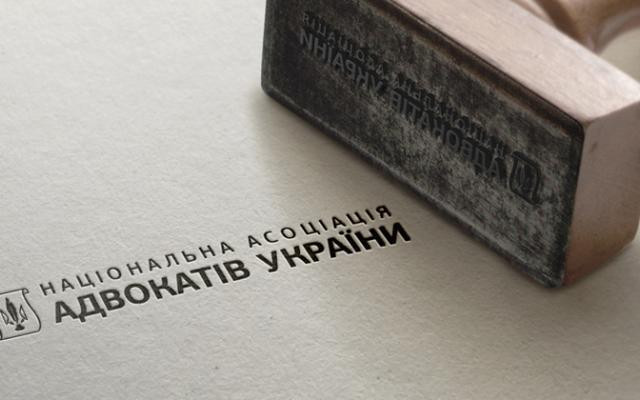
Self-government
The BCU demands a review of the composition of the government working group on reforming the advocacy profession
The President of the UNBA, BCU Lidiya Izovitova, appealed to the Cabinet of Ministers of Ukraine to review the composition of the working group on improving legislation in the field of advocacy and legal practice.

Discussion
Why lowering the age of marriage lacks legal logic
Although until 2012 there was a provision in family law that allowed children to marry from the age of 14 under certain circumstances, its return to Ukrainian law would contradict international obligations and the logic of criminal law.
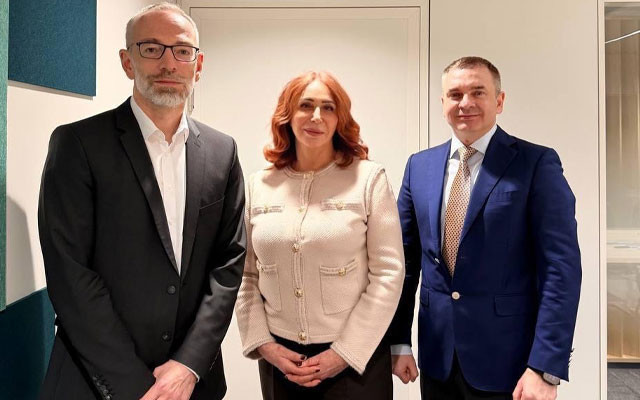
European integration
Open dialogue between the UNBA and the European Commission on the path to EU
The Ukrainian National Bar Association held a working meeting in Brussels with Mr Wolfgang Nozar, Head of Unit for Governance, Rule of Law and Financial Assistance, Directorate-General for Enlargement and Eastern Neighbourhood (DG ENEST), European Commission.

Self-government
A report on Ukrainian advocacy was presented in the European Parliament
Can a shadow report on advocacy replace the political framework of the Roadmap on the rule of law with demands for the restructuring of self-government? Where is the line between accountability and the seizure of institutions? And how can we respond to narratives with data rather than impressions?
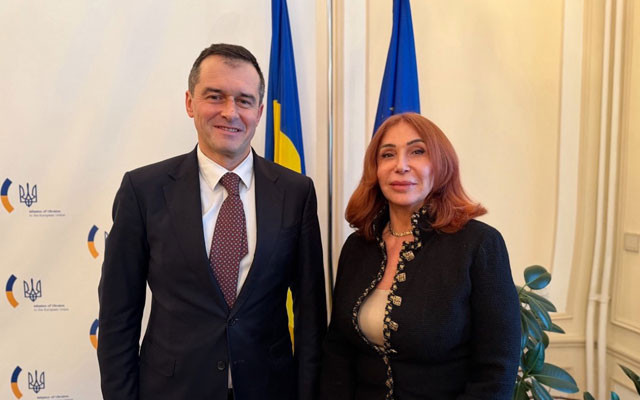
European integration
UNBA and Ukraine's representation to the EU have synchronized their priorities
On February 5, in Brussels, the President of the UNBA, BCU Lidiya Izovitova held a working meeting with the Ambassador Extraordinary and Plenipotentiary of Ukraine, Representative of Ukraine to the European Union Vsevolod Chentsov.
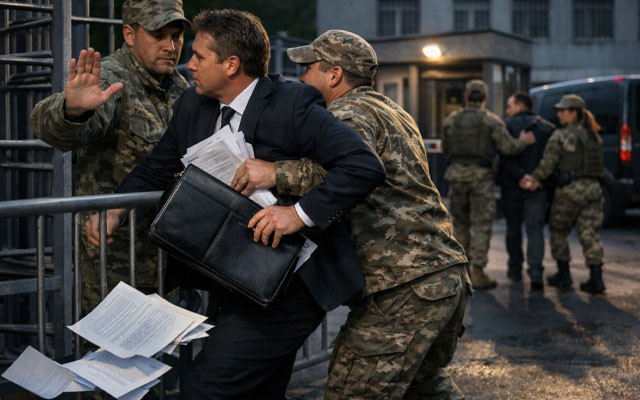
Guarantees of the practice of law
Proceedings opened following attack on advocate in Dnipro
The Committee for the protection of advocates' rights and guarantees of legal practice of the UNBA appealed to law enforcement agencies in connection with an advocate's report of an attack while performing his professional duties. The information was entered into the Unified Register of Pre-trial Investigations and a pre-trial investigation was initiated.
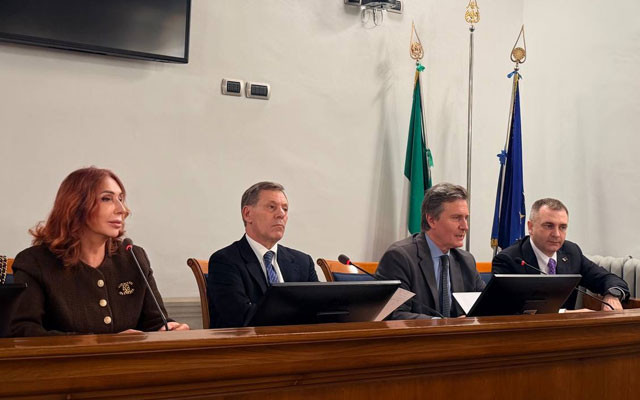
Interaction
«With us — to Europe»: Italian advocacy supports UNBA initiatives
On January 30, a meeting was held in Rome between a delegation from the Ukrainian National Bar Association and the National Bar Council of Italy (Consiglio Nazionale Forense, CNF) on the standards and practices of the legal profession and their significance for Ukraine's European integration process.
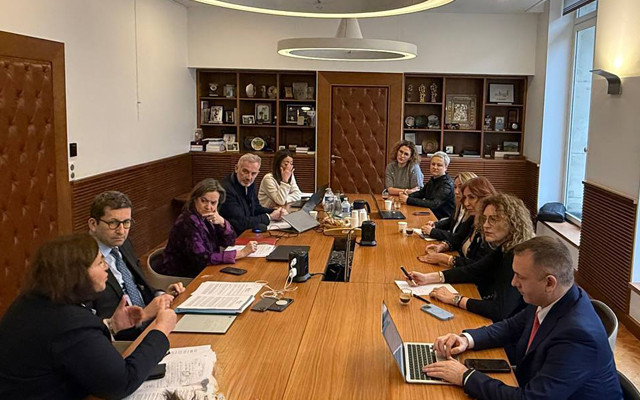
Interaction
France confirms cooperation with UNBA on reforms in the field of the rule of law
On January 29, a working meeting between representatives of the Ukrainian National Bar Association and the French National Bar Council (Conseil National des Barreaux, CNB) took place in Paris.
Publications

Volodymyr Matsko Extradition as a systemic form of rights violations

Victoria Yakusha, Law and Business The anti-corruption vertical cannot «take care» of the Bar as an institution, - acting head of the HQDCB

Censor.net Protecting advocates – protecting justice: addressing concerns about the new law

Ihor Kolesnykov A BRIEF SUMMARY REGARDING THE APPLICATION OF THE ORDER ON EXTENDED CONFISCATION IN LATVIA REGARDING FINANCIAL ASSETS OF…

Valentyn Gvozdiy WORKING IN A WAR ZONE

Lydia Izovitova Formula of perfection

Sergiy Vylkov Our judicial system is so built that courts do not trust advocates

Iryna Vasylyk Advocacy in the proclamation of Independence of Ukraine
